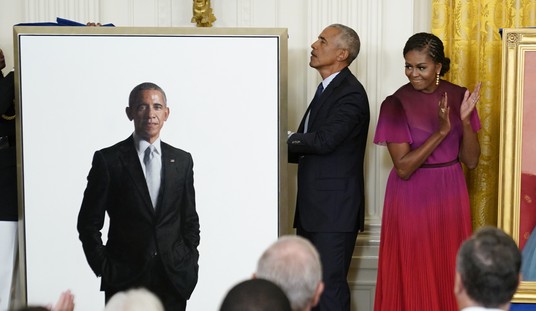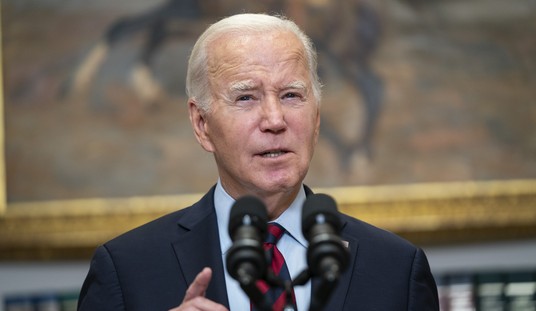U.S. President Barack Obama’s decision not to deploy a missile defense system in Central Europe has received decidedly mixed reviews in Europe. Although newspapers and magazines across the continent have published editorials generally coming out in favor of Obama’s pronouncement, nearly all of them have also expressed deep skepticism that Obama’s so-called strategy of engagement with Russia will bear much fruit.
Indeed, a consistent theme running through European commentary has been bafflement that Obama would abandon the missile defense system without receiving anything from Russia in return. A number of commentators have raised the issue of Obama’s lack of experience in statecraft. In Britain, for example, the Daily Telegraph published an editorial titled “Barack Obama is Gambling with Europe’s Security.” Another article is titled “President Barack Obama is beginning to look out of his depth.” It says: “His credibility is seeping away, and it will require concrete achievements rather than more soaring oratory to recover it.”
European politicians are also lining up to exploit Obama’s perceived naïveté. In Germany, for example, Guido Westerwelle, who could well be Germany’s next foreign minister after September’s national elections, reacted to Obama’s decision on missile defense by calling on the German government to capitalize on the moment to exert pressure on Obama to remove all U.S. nuclear weapons based in Germany by 2013.
Most newspapers have also taken notice of the rather shabby way in which Obama shared the news of his decision with his counterparts in Poland and the Czech Republic, the two American allies most directly affected by Obama’s decision. (It was by way of a telephone call placed at well past midnight local time.) Some newspapers have pointed to the fact that Obama made the announcement on September 17, the same date on which the Soviet Union invaded Poland in 1939.
Obama’s diplomatic clumsiness may boost anti-Americanism in Eastern Europe, the only region in Europe where the United States is actually liked. In Poland, for example, the Defense Ministry said Obama’s decision was “a catastrophe for Poland.” Aleksander Szczyglo, a former Polish defense minister, called the U.S. action a “historic error.” And Lech Walesa, the former Polish president, said: “Americans have always cared only about their interests, and all other [countries] have been used for their purposes. [Poles] need to review our view of America.”
In Germany, meanwhile, Green Party leader Jürgen Trittin said Obama’s decision was an embarrassment for German Chancellor Angela Merkel and her center-right Christian Democratic Union (CDU) party. “Both Merkel and the CDU are disgraced because they always welcomed and supported Bush’s missile defense plans.” Obama’s decision is “a slap in the face to the chancellor,” Trittin said.
More than anything else, however, Obama’s decision seems to be reinforcing the growing perception that the United States is a power in terminal decline. This view has been repeated over and over in print and broadcast media across the continent in recent weeks. It has also been caricatured by political cartoons, such as one published in Britain by the center-left newspaper the Independent, which mockingly declares: “Star Wars: The Empire Downsizes.”
What follows is a review of select European commentary on Obama’s missile defense decision.
In Britain, the center-right Telegraph writes: “With this decision, President Obama has changed the strategic landscape for U.S.-Russian relations. He will now try to secure Russia’s support to bring greater pressure on Iran within the UN Security Council. It remains to be seen, however, whether the Russian government will see this step as warranting a reciprocal concession on their part, especially towards Iran. The Russian leadership perceives the world in a ‘zero-sum’ context, where a weakening of America represents a strengthening of Russia. President Obama will soon learn whether his strategy of engagement will bear fruit or whether, like Iran itself in recent months, America’s other opponents are simply not willing to bow to the new policy of engagement any more than they were to previous policies of confrontation.”
The center-right London-based Times, in an analysis titled “What will Obama get back from Russia after ditching missile defense?”, writes: “Vladimir Putin could be forgiven for having a celebratory shot of vodka with breakfast this morning at news that President Obama plans to abandon America’s missile defense shield in Eastern Europe. His implacable opposition to the project has paid off, leaving the Kremlin emboldened in its drive to re-establish a strategic ‘sphere of privileged interests’ over Russia’s former Soviet satellites. By trading the loyalty of Poland and the Czech Republic to satisfy Russia’s security concerns, the United States is signaling that it no longer contests Moscow’s right to assert its interests in Eastern Europe. … For Mr Putin, the lesson of today’s decision is clear. Intransigence pays dividends because the U.S. and the European Union lack the patience or determination to face Moscow down. That is a lesson that will send alarm bells ringing in the corridors of power of Russia’s former Soviet dominions.”
In France, the center-left Le Monde, writes: “The decision of the American president is one of especially high stakes. If Barack Obama follows through with his stated decision, he may hope for reciprocal gestures from Moscow, particularly in terms of Iran. … But will Moscow want to respond to this American overture? Poland, the Czech Republic as well as the Baltic States, the countries most affected by the U.S. change of heart, are very skeptical. … Barack Obama will have to allay their concerns.”
In Germany, the center-left Süddeutsche Zeitung writes: “Obama’s biggest challenge is this: He has to quell the suspicion that he has buckled in the face of Russia. And he has to succeed in doing this not only in the U.S. Congress, but also when it comes to America’s allies in Eastern Europe. They are afraid that some people in Moscow will be able to misinterpret the decision to cancel the missile defense shield as a sign of weakness and to be emboldened to promote their interests with tanks in other places in the same way they did in Georgia.”
The Financial Times Deutschland writes: “What is truly unusual about Obama’s decision is that he is taking a huge step toward Russia without having any guaranteed quid pro quo to show for it. It is a rare thing for a U.S. president to make a down payment like this. It either shows great courage in the face of risk or pure naiveté. Just how risky Obama’s bet is can be seen from Moscow’s celebrations of the cancellation of the missile plans. Diplomats are pounding their chests and boasting that Obama’s buckling was the logical consequence of their refusal to compromise on this issue. For Obama, it will be a very expensive decision. In terms of domestic politics, he is exposing himself to accusations of being a wimp and damaging the country’s security. In terms of foreign politics, he is snubbing two allies — the Czech Republic and Poland — who view the cancellation of the missile shield as a betrayal. It would be dangerous for Obama if people got the impression that he had genuflected before the Russians. He has no way of guaranteeing that they will respond to his gesture of friendship. Moscow has the upper hand now.”
The center-right Die Welt writes: “[Obama’s decision] does raise the question of whether this policy is naïve and, in the end, dangerous. The other problem is that it leaves much of Central Europe disappointed. … People there are afraid of being abandoned again. Sandwiched between Western Europe (Germany, in particular) and Russia, the nations in Central Europe were for a long time the ping-pong ball of foreign powers. Having been admitted into NATO and the EU and having become visible partners with the U.S. raised hopes in these countries that they really counted for something. After Obama’s failure to appear at the ceremony marking the anniversary of the beginning of World War II in Gdansk, this will be the second blow to their hopes. Those who continue to believe that the freedom movement in the 1980s was right will enthusiastically welcome Obama’s decision. But they need to remember just one thing: Communism came to a peaceful end because America was both civil and well-armed.”
The Berliner Morgenpost writes: “The governments in Warsaw and Prague, which sought the deployment of the missile shields despite strong resistance in their own countries, have been duped by Obama. Their confidence in America’s reliability has not been strengthened. They may retaliate if America announces, after 2015, that it actually does want to put an entirely new missile system in Poland and the Czech Republic.”
The center-left Frankfurter Allgemeine Zeitung writes: “Poland and the Czech Republic have exposed themselves to a lot of criticism from their neighbors to the west, serious threats from Russia and the skepticism of their own populations. But, from now on, they will give a lot more thought to working closely with America on such controversial issues and the consequences that doing so entails. Obama might have been thinking that canceling the plan would elicit some sort of quid pro quo from Moscow. The Russians are very happy about it, less because it can (presumably) improve U.S.-Russian relations, and more because it means that Russia’s tantrum has had its desired effect. … Russia’s claim that the planned missile defense system harmed strategic stability was never meant seriously. It was rather intended as propaganda and a way to influence a public that was very touchy about this issue. So this means it pays to play hardball.”









Join the conversation as a VIP Member